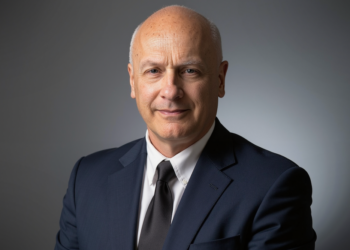Deborah Johnson, the mastermind and principal behind High-Stakes Communication, was drawn to the legal world by serendipity. In her previous life, she prepared executives for media interviews and events, prepping people for Barbara Walters, The New York Times and other exclusive media outlets. In this role, she was approached by a litigator to help prepare a witness for trial. Intrigued, Johnson decided to apply her lifetime of experience preparing key messages, combined with her degree in psychology, to help people who had a lot more on the line.
AALM: What drew you to open High- Stakes Communication? How has it evolved since?
Johnson: I was so enamored of this new possibility to expand my work that a good friend suggested I should start a new company specifically for this work and call it High-Stakes Communication. Ding! The light went on and my new company was born. In the beginning I was more broadly reaching out to provide services to business executives and organizations. Over the past few years I have developed a laser focus on helping attorneys and their clients.
AALM: Tell us about the brand this company you have created and the culture it strives to maintain?
Johnson: I’m a Midwest kid. My dad taught me to work hard, to treat every person with respect, to put myself in other people’s shoes so I could understand what they really needed and then deliver that. My singular goal is to take the pressure off attorneys by giving them the advantage of having their witness or witnesses excel on the stand or at deposition. When people are faced with losing their company, losing their kids, ruining their reputation or going to jail, they don’t always come across well. They’re scared, angry, talk too much or don’t listen. Emotional baggage or behavioral quirks keep them from being able to communicate well. That’s my forte – turning around the undesirable behaviors and helping them be the best version of themselves they can be. That’s where I love to work and make a difference.
AALM: In your experience, what are some of the most common mistakes made by attorneys when it comes to case presentation?
Johnson: One of the missing pieces can be understanding how the jury ingests messages. The public is inundated with media and social media. They are given a diet of messages in a certain way. When they walk into the courtroom, they have a point of view of what it’s supposed to be like. If an attorney’s case and messages are not delivered in a way that is palatable to them, the jury may not go your way. So, using techniques of the media – modified for the courtroom – can enhance the success rate. One example is spending too much time telling and not enough time showing. The jury expects to see your case, just like on TV.
AALM: How is the company involved in the community?
Johnson: I’ve been doing workshops at Fresh Start Women’s Foundation to help women going through divorce. This is my second year to serve as the director of education for the National Association of Legal Professionals. I like to participate in fundraising walks. Every year at Thanksgiving my husband’s company and mine donate at least a thousand meals to St. Mary’s Food Bank.
AALM: Is there anything else you’d like to add?
Johnson: My fundamental commitment is to help people be heard and understood for who they truly are. To help them overcome stumbling blocks that keep them from making a connection with others – whether that’s a custody evaluator, a judge, a jury, an audience at a speaking engagement, or even their loved ones.








